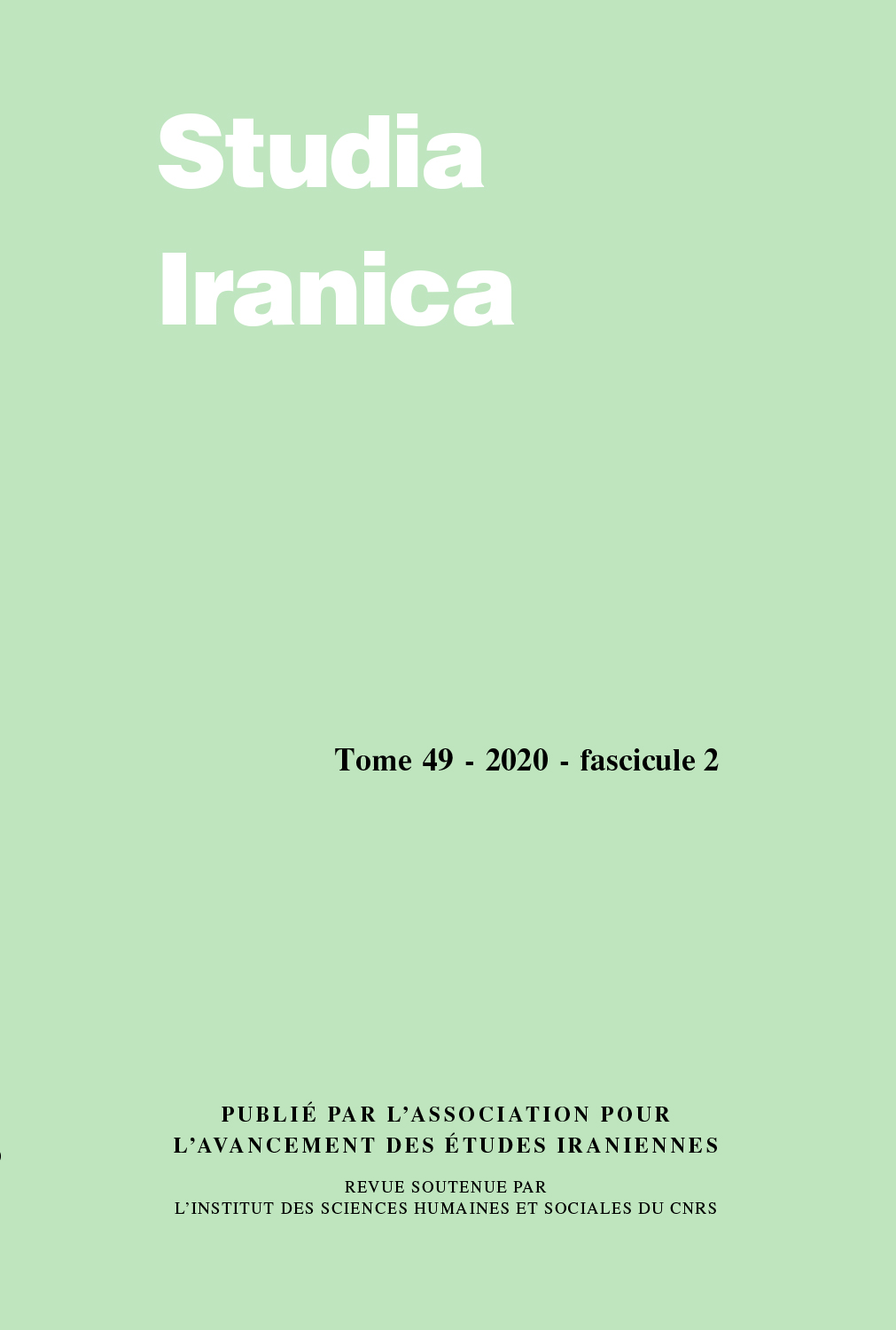 previous article in this issue previous article in this issue | next article in this issue  |

Preview first page |
Document Details : Title: Aspects de l'imāmologie duodécimaine I Subtitle: Remarques sur la divinité de l'Imām Author(s): AMIR MOEZZI, Mohammad Ali Journal: Studia Iranica Volume: 25 Issue: 2 Date: 1996 Pages: 193-216 DOI: 10.2143/SI.25.2.2003958 Abstract : La littérature théosophique šī'ite contient un certain nombre de prônes attribués à 'Alī où celui-ci, manifestation par excellence de l'Imām cosmique, prononce, à travers des discours particulièrement audacieux, son identité avec le Dieu Révélé. Ces prônes sont apocryphes et semblent assez tardifs étant donné que les premiers textes s'y rapprochant datent de la fin du IIIe/IXe siècle. Plus le temps passe, plus nos textes s'étoffent et dans la grande confusion qui marque l'intitulé des prônes et leurs contenus, trois titres émergent avec plus d'insistance: xuṭbat al-bayān, xuṭbat al-iftixār et al-xuṭbat al-taṭanjiyya. L'«orthodoxie» duodécimaine, dominé par la tendance appelée «modérée», considère d'une façon générale que ces textes appartiennent à des courants «hérétiques» du šī'isme «extrémiste», mais le corpus duodécimain ancien des traditions attribuées aux imāms, rapporté essentiellement par la tendance «ésotérique non-rationnelle», contient bon nombre de propos et de doctrines qui semblent préparer et annoncer les prônes en question. Après avoir donné l'histoire des ces prônes à travers les sources, le texte d'un prône, rapporté par Ja'far Kašfī qui synthétise en quelque sorte les trois prônes mentionnés, est traduit dans son intégralité. Shī'ite theosophical literature contains a number of sermons attributed to 'Alī in which he, as the supreme manifestation of the cosmic Imām, announces his identity with the Revealed God in particulary daring terms. These sermons are apocryphal and would seem to be quite late, given that the first texts related to them date from the end of the 3rd/9th century. With the passage of time, the texts become more and more substantial, and from the great confusion that marks both the sermons and their titles, three titles emerge as the most prominent: xuṭbat al-bayān, xuṭbat al-iftixār and al-xuṭbat al-taṭanjiyya. Twelver 'orthodoxy', dominated by what is known as the 'moderate' tendency, generally considers these texts to belong to 'heretical' currents of 'extremist' shī'ism; but the ancient twelver sources of the traditions attributed to the imāms, which have been principally conserved by the 'esoteric non-rational' tendency, contains many sayings and doctrines concerning the imāms which seem to prepare and foreshadow these particular sermons. Following a presentation of the history of these sermons through sources, the text of one of them, recorded by Ja'far Kašfī, which seems a synthesis of the three sermons, is translated in its entirety. |
|


